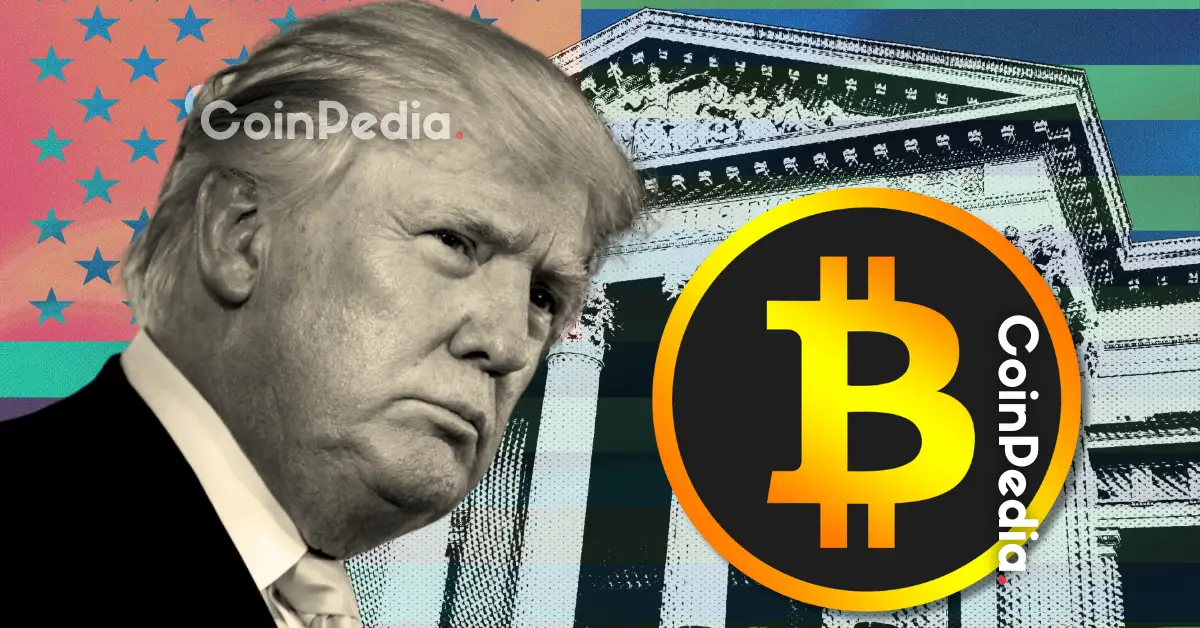The Enigma of America’s Digital Vault: A Deep Dive into the U.S. Crypto Reserve
Introduction: The Digital Frontier
The concept of a U.S. Crypto Reserve, particularly under the leadership of Donald Trump, has sparked intense debate and speculation. This idea, which positions America at the forefront of the digital economy, also raises concerns about centralization, market manipulation, and regulatory challenges. As we delve into this digital Pandora’s Box, we must consider the implications and potential outcomes of such a reserve.
A Reserve of What, Exactly?
The composition of a U.S. Crypto Reserve remains a subject of debate. While some reports suggest a Bitcoin-centric approach, others hint at a diversified portfolio including XRP, SOL, and ADA. This diversity has raised questions about potential conflicts of interest and strategic allegiances.
Bitcoin Maximalism vs. Diversification
Bitcoin maximalists argue that Bitcoin’s decentralized nature, scarcity, and proven track record make it the only viable option for a sovereign reserve. They contend that diversification introduces unnecessary complexity and exposes the reserve to the volatility of altcoins, which often lack Bitcoin’s fundamental strengths.
On the other hand, proponents of a diversified reserve argue that it allows the U.S. to capitalize on the potential of emerging blockchain technologies and hedge against the risks associated with relying solely on Bitcoin. However, this approach opens the door to accusations of favoritism, market manipulation, and the inherent risks of investing in less-established and often more volatile cryptocurrencies.
The Ghost in the Machine: Funding and Acquisition
The question of how to acquire and fund such a reserve is a significant challenge. Several options have been proposed, each with its own set of issues.
Seized Assets: A Double-Edged Sword
One potential source of funding lies in the seizure of crypto assets from illicit activities. While this might seem politically palatable, it raises questions about the scale and consistency of such seizures. Can they truly generate enough value to build a substantial reserve? Moreover, the legal complexities surrounding asset forfeiture could lead to protracted battles and uncertain outcomes.
Taxpayer Funds: A Political Minefield
The idea of using taxpayer money to directly purchase cryptocurrencies is likely to face fierce opposition from both sides of the political spectrum. Critics would argue that it is an irresponsible use of public funds, particularly given the volatile nature of the crypto market. It also raises fundamental questions about government intervention in the market and the potential for creating moral hazard.
Debt Acquisition: Kicking the Can Down the Road
Another option involves issuing new debt to finance the acquisition of crypto assets. This approach might be more palatable in the short term, but it merely defers the problem to future generations. Moreover, it raises concerns about the long-term sustainability of the reserve and the potential for exacerbating the national debt.
Regulatory Quagmire: Navigating the Uncharted Waters
The establishment of a U.S. Crypto Reserve would inevitably trigger a complex web of regulatory challenges. The existing regulatory framework for cryptocurrencies is fragmented and often ambiguous, leaving much room for interpretation and potential conflict.
SEC’s Role: Enforcement vs. Innovation
The Securities and Exchange Commission (SEC) has taken a relatively aggressive stance towards the crypto industry, focusing primarily on enforcement actions against unregistered securities offerings. While the White House report urges the SEC to take action even without new laws, this approach risks stifling innovation and driving crypto businesses overseas.
Congressional Action: The Need for Clarity
Ultimately, Congress needs to step in and provide a clear and comprehensive regulatory framework for cryptocurrencies. This would provide much-needed clarity for businesses, investors, and regulators alike. However, the deeply partisan nature of Congress makes it difficult to reach a consensus on such a complex and controversial issue.
The Specter of Centralization
Perhaps the most profound concern is the potential for a U.S. Crypto Reserve to lead to centralization and institutional control over Bitcoin and other cryptocurrencies. Bitcoin’s core value proposition lies in its decentralized nature, which makes it resistant to censorship and manipulation. If the U.S. government amasses a significant portion of the Bitcoin supply, it could potentially exert undue influence over the network, undermining its fundamental principles.
Trump’s Pro-Crypto Pivot: A Calculated Move?
Donald Trump’s apparent shift towards a pro-crypto stance has surprised many observers, given his past skepticism towards digital currencies. Some speculate that this is a calculated move to appeal to a younger, more tech-savvy electorate. Others suggest that he sees the potential for the U.S. to become a global leader in the crypto industry, creating jobs and boosting economic growth. Whatever the motivation, Trump’s support for a U.S. Crypto Reserve has undoubtedly injected a new level of political energy into the debate.
Conclusion: A High-Stakes Gamble
The idea of a U.S. Crypto Reserve is a complex and multifaceted issue with potentially far-reaching consequences. While it could position America at the forefront of the digital economy, it also carries significant risks, including market manipulation, regulatory uncertainty, and the erosion of Bitcoin’s decentralized principles. As the U.S. navigates this uncharted territory, it must proceed with caution, balancing the potential benefits with the inherent risks. The future of America’s digital vault, and perhaps the future of cryptocurrency itself, hangs in the balance.

